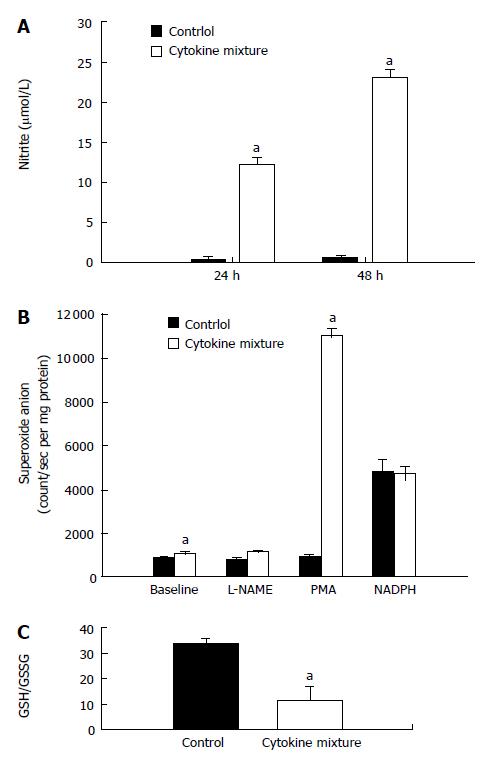Copyright
©2007 Baishideng Publishing Group Inc.
World J Gastroenterol. Dec 14, 2007; 13(46): 6219-6225
Published online Dec 14, 2007. doi: 10.3748/wjg.v13.i46.6219
Published online Dec 14, 2007. doi: 10.3748/wjg.v13.i46.6219
Figure 2 Oxidant status of KKU-100 cells after exposure to a mixture of inflammatory cytokines.
A: Stimulation of nitric oxide production, assayed as nitrite levels. Cultured media was collected at 24 and 48 h after exposure; B: Superoxide formation. Cell cultures were washed and incubated with PMA (0.68 μg/mL), L-NAME (100 μmol/L), or NADPH (200 μmol/L), and superoxide production was measured using the chemiluminescence method; C: Redox status was assessed as the GSH and GSSG ratio. Results are presented as mean ± SE from 3 separate experiments. aP < 0.05 between cytokine treated and the respective control groups.
-
Citation: Buranrat B, Prawan A, Sripa B, Kukongviriyapan V. Inflammatory cytokines suppress arylamine
N -acetyltransferase 1 in cholangiocarcinoma cells. World J Gastroenterol 2007; 13(46): 6219-6225 - URL: https://www.wjgnet.com/1007-9327/full/v13/i46/6219.htm
- DOI: https://dx.doi.org/10.3748/wjg.v13.i46.6219









